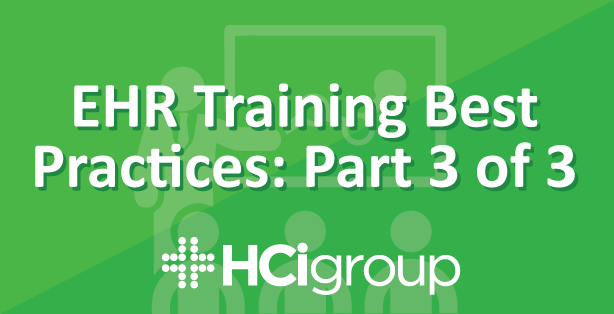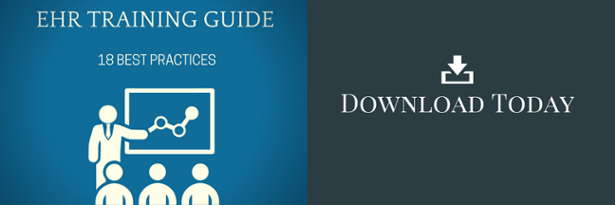
Following the 12 tips from the first two EHR Training Best Practices posts, part 3 presents the final six tips for EHR training program success from HCI's own Stephen Tokarz. If you haven't read the first two parts, you can catch up here: part 1 and part 2.
Data Gathering
Plan to gather feedback on training and catalog workflows that physicians/staff struggle with during class and when completing unit proficiency assessments. Use this data to refine your curricula, provide just-in-time training, and target at-the-elbow support during go-live.
Physician Training Tracks
Physicians learn best from other Physicians. Set them up for success by offering a boot camp for physician trainers to learn the nuances of technical training and EHR. Pair them with experienced credentialed trainers during classroom delivery and point out productivity tips and tricks throughout their track.
Offer Accelerated Training Tracks
As the use of your EHR grows, so does the base of physicians and staff who have experience with the system. Create accelerated training tracks for those who meet a threshold of EHR experience so that they become more familiar with your organizations EHR workflow/build nuances. For those with solid EHR experience, don't waste time training basic concepts with which they'll already be familiar.
Enrollment and Reporting
An EHR training initiative will have a large impact on the majority of your internal staff. Be sure to also remember contractors and others that will need education on EHR. For tracking purposes, get these users loaded into your Learning Management System early. Work closely with unit managers to enroll staff and consider appointing a few individuals to own the enrollment process. Provide regular enrollment and completion percentage reports to management to be sure your LMS is configured and ready. Ideally, no-show reports should be provided to managers multiple times a day so that staff can be re-enrolled right away.

Complementary and Impactful Training Events
EHR training should not be a single event, but rather a series of formal and informal learning opportunities. Consider planning for and offering the following activities that maximize learner engagement and knowledge retention:
- Manager Training
- Reporting Labs
- High-Fidelity Simulation Sessions
- Multidisciplinary workflow labs
- “Why” before the “How” video of health system leaders explaining the benefits of EHR to be shown at the start of each class
- Personalization Sessions
Enduring Training
Start planning for how your enduring training team will be structured. They will be responsible for new hire training, upgrade training, and other initiatives. Create a new hire training schedule and publish it at least 2 months before EHR go-live. Ideally, this schedule will align with your New Employee Orientation cycles. Also, consider the onboarding process and how it may need to be updated with the introduction of an EHR training requirement before hitting the floor.
These steps can help an organization as they prepare for the exciting prospect of an EHR implementation.
Additional Resources You May Be Interested In: